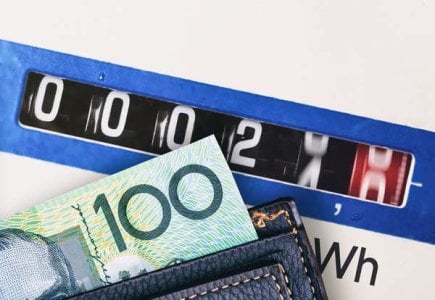Power up your savings: Aussie state’s electrifying new relief package shocks bills down!
- Replies 37
As we navigate the evolving landscape of household expenses, it's essential to stay informed about the latest government initiatives aimed at easing financial burdens.
Recently, a significant relief measure has been announced, promising substantial support for residents. This initiative is poised to provide much-needed assistance to households, especially amid rising living costs.
Understanding the specifics of this support program can help residents make the most of the available benefits and plan their finances more effectively. Read on to discover how this development could positively impact your household budget and what steps you need to take to access the assistance.
There's some good news on the horizon for West Australians! The WA government announced a generous cost-of-living relief package that will see households and small businesses receive significant discounts on their electricity bills.
Starting from July, all West Australian households and 90,000 small businesses will benefit from this initiative.
Households will receive $700 in energy ‘credits’, while small businesses will be allocated $725. Both will be distributed over the year in two instalments during peak usage periods in the hottest and coldest months.

The initial instalment, amounting to $350 for households and $325 for small businesses, will be reflected on power bills from the upcoming July-August billing cycle.
The second instalment, matching the initial amounts, will be applied to power bills during the December-January billing cycle.
According to the WA Government's statement on Sunday, June 23, only small businesses with an annual electricity usage below 50MWh will qualify for the relief package.
This electricity credit is a joint effort by the state and commonwealth governments and marks the fourth such initiative delivered by the WA Labor Government.
Federal Treasurer Jim Chalmers emphasised the dual benefits of the package, stating, ‘The primary focus of our economic plan and our budget is to ease pressure on Western Australians and put downward pressure on inflation, and our new power bill relief does both.’
‘Just like every taxpayer is getting a tax cut, every household will now get energy bill relief under the Albanese Government from next month, with plenty of support for small businesses as well.’
For those households and small businesses not directly serviced by the state's two electricity retailers—Synergy and Horizon Power—there's no need to worry.
The WA Government announced that ‘applications for assistance are expected to open in July’, with the process facilitated through RevenueWA and the Small Business Development Corporation.
Moreover, the government has not forgotten about the most vulnerable members of the community.
Additional support is available for pensioners, veterans, and Health Care Card holders through the Energy Assistance Payment, ensuring that those who are most in need receive the help they deserve.
‘Our responsible financial management means we can invest in what matters to Western Australia without leaving behind a mountain of debt,’ WA Premier Roger Cook stated.
While Western Australian households and small businesses are set to benefit from these upcoming energy credits, they are not the only ones experiencing relief.
Similar initiatives were introduced in other parts of Australia, demonstrating a nationwide effort to mitigate rising energy costs.
For instance, Queensland residents have also seen significant government support, with a substantial electricity credit aimed at easing financial pressures.
This broader trend of energy relief measures highlights a collective move towards supporting Australians through challenging economic times.
 What are your thoughts on this initiative? What other steps could the government take to alleviate the plight of Australians amid soaring living costs? We invite you to share your insights and opinions in the comments below.
What are your thoughts on this initiative? What other steps could the government take to alleviate the plight of Australians amid soaring living costs? We invite you to share your insights and opinions in the comments below.
Recently, a significant relief measure has been announced, promising substantial support for residents. This initiative is poised to provide much-needed assistance to households, especially amid rising living costs.
Understanding the specifics of this support program can help residents make the most of the available benefits and plan their finances more effectively. Read on to discover how this development could positively impact your household budget and what steps you need to take to access the assistance.
There's some good news on the horizon for West Australians! The WA government announced a generous cost-of-living relief package that will see households and small businesses receive significant discounts on their electricity bills.
Starting from July, all West Australian households and 90,000 small businesses will benefit from this initiative.
Households will receive $700 in energy ‘credits’, while small businesses will be allocated $725. Both will be distributed over the year in two instalments during peak usage periods in the hottest and coldest months.

Starting next month, all West Australian households and small businesses will receive discounted electricity as part of a cost-of-living relief package. Credit: Shutterstock
The initial instalment, amounting to $350 for households and $325 for small businesses, will be reflected on power bills from the upcoming July-August billing cycle.
The second instalment, matching the initial amounts, will be applied to power bills during the December-January billing cycle.
According to the WA Government's statement on Sunday, June 23, only small businesses with an annual electricity usage below 50MWh will qualify for the relief package.
This electricity credit is a joint effort by the state and commonwealth governments and marks the fourth such initiative delivered by the WA Labor Government.
Federal Treasurer Jim Chalmers emphasised the dual benefits of the package, stating, ‘The primary focus of our economic plan and our budget is to ease pressure on Western Australians and put downward pressure on inflation, and our new power bill relief does both.’
‘Just like every taxpayer is getting a tax cut, every household will now get energy bill relief under the Albanese Government from next month, with plenty of support for small businesses as well.’
For those households and small businesses not directly serviced by the state's two electricity retailers—Synergy and Horizon Power—there's no need to worry.
The WA Government announced that ‘applications for assistance are expected to open in July’, with the process facilitated through RevenueWA and the Small Business Development Corporation.
Moreover, the government has not forgotten about the most vulnerable members of the community.
Additional support is available for pensioners, veterans, and Health Care Card holders through the Energy Assistance Payment, ensuring that those who are most in need receive the help they deserve.
‘Our responsible financial management means we can invest in what matters to Western Australia without leaving behind a mountain of debt,’ WA Premier Roger Cook stated.
While Western Australian households and small businesses are set to benefit from these upcoming energy credits, they are not the only ones experiencing relief.
Similar initiatives were introduced in other parts of Australia, demonstrating a nationwide effort to mitigate rising energy costs.
For instance, Queensland residents have also seen significant government support, with a substantial electricity credit aimed at easing financial pressures.
This broader trend of energy relief measures highlights a collective move towards supporting Australians through challenging economic times.
Key Takeaways
- All West Australian households and small businesses will receive discounted electricity as part of a cost-of-living relief package starting next month.
- Households will get $700 in electricity credits, while eligible small businesses will receive $725, distributed in two instalments.
- The electricity credits are jointly funded by the state and Commonwealth governments and mark the fourth credit delivered by the WA Labor Government.
- Applications for assistance for those not with Synergy or Horizon Power will open in July, with additional support available for pensioners, veterans, and Health Care Card holders through the Energy Assistance Payment.








